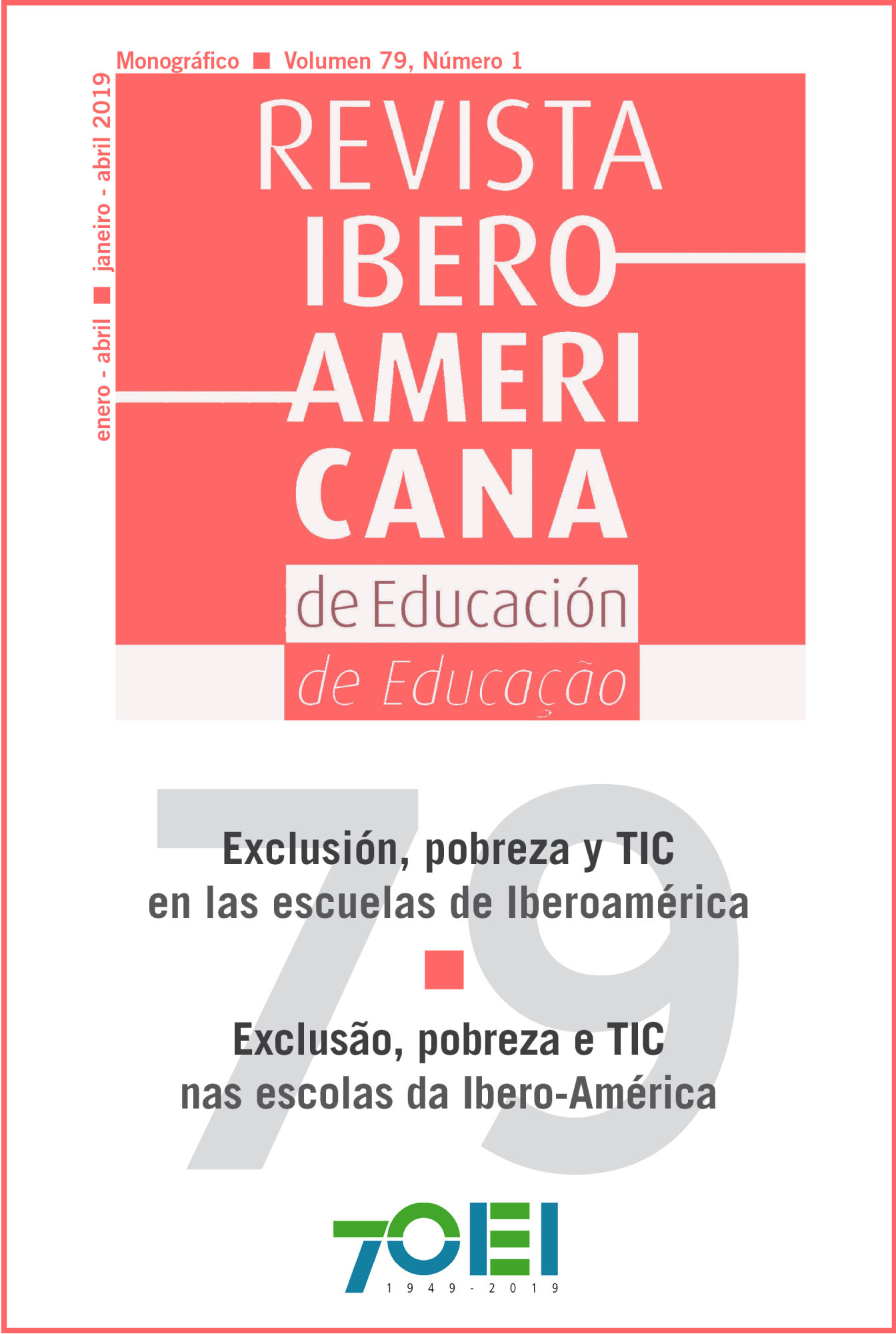Aprender com tecnologias para ensinar com tecnologias na República Dominicana. O programa República Digital Educación
DOI:
https://doi.org/10.35362/rie7913322Palavras-chave:
tecnologias digitais; formação de professores; exclusão digital; inclusão digitalResumo
A integração das tecnologias digitais nas instituições de ensino e nas salas de aula na América Latina não é recente. Diferentes países desenvolveram suas próprias políticas, adaptando-as às suas tradições, condições e possibilidades. Neste artigo, apresentamos de forma resumida o programa República Digital Educación, que desde 2017 vem sendo implementado na República Dominicana. O programa República Digital Educación é uma iniciativa da presidência do governo dominicano que visa modernizar e melhorar a qualidade do ensino e da aprendizagem dos estudantes por meio da integração de tecnologias digitais nos processos de ensino e de aprendizagem, bem como na gestão das instituições de ensino. O programa inclui a entrega de um computador (laptop) para cada professor, equipe dirigente e aluno, bem como de lousas digitais. O programa de República Digital Educación adotou um modelo de formação voltado para a escola. Ele criou a figura do facilitador (um professor do sistema educacional com altas competências técnico-pedagógicas) que trabalha permanentemente em centros educacionais. Neste artigo, descrevemos o processo de formação desenvolvido e os resultados preliminares do programa.
Downloads
Referências
Bingimlas, K. (2009). Barriers to the Successfull Integration of ICT in Teaching Learning Environments: A review of the Literature. Eurasia Journal of Mathematics, Science and Technology Education, 5(3), 235–245.
Chien, Y. T., Chang, C. Y., Yeh, T. K. y Chang, K. E. (2012). Engaging pre-service science teachers to act as active designers of technology integration: A MAGDAIRE framework. Teaching and Teacher Education, 28(4), 578–588.
Cristia, J., Ibarrarán, P., Cueto, S., Santiago, A. y Severín, E. (2017). Technology and Child Development: Evidence from the One Laptop per Child Program. American Economic Journal: Applied Economics, 9(3), 295–320.
De Melo, Gioia, Machado, Alina and Miranda, Alfonso (2014). The Impact of a One Laptop per Child Program on Learning: Evidence from Uruguay. Discussion paper series. IZA DP N. 8489. Forschungsinstitut zur Zukunft der Arbeit Institute for the Study of Labor. http://ftp.iza.org/dp8489.pdf.
Díaz Barriga, F. (2014). Las políticas TIC en los sistemas educativos de América Latina: caso México. Buenos Aires: UNICEF.
Galvis, A. (2014). Las políticas TIC en los sistemas educativos de América Latina: caso Colombia. Buenos Aires: UNICEF.
Hew, K. F. y Brush, T. (2007). Integrating technology into K-12 teaching and learning: current knowledge gaps and recommendations for future research. Educational Technology Research and Development, 55(3), 223–252.
Jara, I. (2013). Las políticas TIC en los sistemas educativos de América Latina: caso Chile. Buenos Aires: UNICEF.
Kay, R. (2006). Evaluating Strategies Used To Incorporate Technology Into Preservice Education: A review of the Literature. Journal of Research on Technology in Education, 38(4), 385–410.
Koehler, M. y Mishra, P. (2008). Introducing TPCK. In Handbook of Technological Pedagogical Content Knowledge (TPCK) for Educators, (pp. 3–29). New York: Routledge.
Koh, J. H. L. y Divaharan, S. (2011). Developing pre-service teachers’ technology integration expertise through the TPACK-developing instructional model. Journal of Educational Computing Research, 44(1), 35–58.
Lee, C. J. y Kim, C. (2014). An implementation study of a TPACK-based instructional design model in a technology integration course. Educational Technology Research and Development, 62(4), 437–460.
Malapile, S. y Keengwe, J. (2014). Information Communication Technology planning in developing countries. Education and Information Technologies, 19(4), 691–701.
MINERD. (2013). Marco de Formación Continua. Una perspectiva articuladora para una escuela de calidad. Santo Domingo: Ministerio de Educación. Instituto Nacional de Formación y Capacitación del Magisterio.
Muñoz, L., Brenes, M., Bujanda, M. E., Mora, M., Núñez, O. y Magaly Zúñiga. (2014). Las políticas TIC en los sistemas educativos de América Latina: caso Costa Rica. Buenos Aires: UNICEF.
OECD. (2005). Teachers matter: attracting, developing and retaining effective teachers. Paris: OECD.
OECD. (2013). Teaching and Learning International Survey. Paris: OECD.
Tezci, E. (2011). Factors that influence pre-service teachers’ ICT usage in education. European Journal of Teacher Education, 34(4), 483–499.
Tondeur, Jo; van Braak, Johan; Ertmer, Peggy A.; Ottenbreit-Leftwich, Anne (2017). Understanding the Relationship between Teachers’ Pedagogical Beliefs and Technology Use in Education: A Systematic Review of Qualitative Evidence. Educational Technology Research and Development, 65 (3),555-575.
UNESCO. (2013a). Uso de TIC en educación en América Latina y Caribe. Análisis regional de la integración de las TIC en la educación y de la aptitud digital. París: UNESCO.
UNESCO (2013b). Enfoques estratégicos sobre las TICs en educación en América Latina y El Caribe. Santiago: Oreal/Unesco.
Vacchieri, A. (2013). Las políticas TIC en los sistemas educativos de América Latina: caso Argentina. Buenos Aires: UNICEF.
Vaillant, D. (2013). Las políticas TIC en los sistemas educativos de América Latina. Caso Uruguay. Buenos Aires: UNICEF.
Vanderlinde, R., Braaka, J. van y Dexterc, S. (2012). ICT policy planning in a context of curriculum reform: Disentanglement of ICT policy domains and artifacts. Computers & Education, 58(4), 1339–1350.
Wright, C. (2014). 5 Key Barriers to Educational Technology Adoption in the Developing World. Educational Technology Debate, April. https://bit.ly/1hHCqNK
Como Citar
Downloads
Publicado
Edição
Seção
Licença
Os(as) autores(as) que publiquem nesta revista concordam com os seguintes termos:















